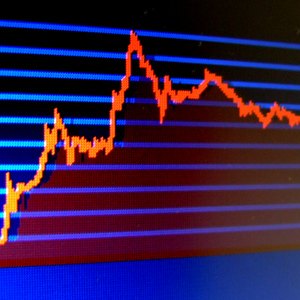
If you invest in the stock market, you might have heard of the possibility of acquiring stock warrants rather than acquiring stock directly. Similar to stock options, share warrants give you the right to buy, or sometimes sell, shares at a certain price before the warrant expires. They don't pay dividends or give you voting rights in a company. Note that the term warrant in finance is unrelated to how it's used in criminal law.
Buying and Selling Stock
If you own stock in a corporation, that represents a share of ownership of the company. Most stock allows you to vote on who is on the corporate board and potentially other decisions about how the company is run.
Stock in publicly traded companies is sold on stock markets such as the Nasdaq or New York Stock Exchange, and you can usually quickly buy or sell shares by working with a brokerage firm of your choice.
Many companies also pay dividends to stockholders, essentially distributing some of the profits to company owners based on how much stock they own. Companies will also sometimes do share buybacks, purchasing a portion of the company's stock as another means to return money to investors.
Understanding Share Warrants
Share warrants, or stock warrants, represent the right to buy or sell a certain amount of stock in a company for a certain price in a certain range of time. They're issued by the company that issues the stock and can generally be bought and sold by people who own them, although they're generally not as easy to trade on public markets as the underlying stock itself.
Naturally, they're only useful if they give you the right to buy stock cheaper than it's trading on the open market or sell it for more than it would sell at present-day prices. Warrants to buy stock are therefore potentially a good investment if you think the stock price will go up, and warrants to sell it are a logical investment if you think the price will go down.
In some cases, you can only exercise the warrant on the actual day it expires, and in other cases, you can exercise it over a longer lifetime. Make sure you understand the terms of a warrant you are buying so you can value it correctly according to your own market predictions and investment goals.
When you hold share warrants, you don't get any voting rights in the company beyond any stock you also own, and you don't earn dividends based on your warrants.
Warrants are sometimes issued to investors in startup companies, sometimes bundled with loan agreements, letting the investors buy shares at a reduced price in the future if the company does well.
Stock Warrants Vs. Options
Like warrants, stock options also give you the right to buy or sell a security at a certain price during a certain time period.
One big difference between a warrant and an option is that a warrant is always issued by the company issuing the stock, while a third-party can issue and sell an option. Another difference is that when a warrant is exercised to buy stock, new shares are actually issued to meet the purchase, meaning that existing shareholders' ownership stakes are diluted according to how much stock is bought with the warrant.
For a small purchase of a big company's stock, this won't make much of a difference, but if the purchase is larger relative to the total amount of stock, this can be more significant.
Warrants and options are generally valued similarly since they have similar benefits depending on if stock prices rise or fall. Options are commonly issued to employees as part of their compensation.
References
Writer Bio
Steven Melendez is an independent journalist with a background in technology and business. He has written for a variety of business publications including Fast Company, the Wall Street Journal, Innovation Leader and Ad Age. He was awarded the Knight Foundation scholarship to Northwestern University's Medill School of Journalism.
